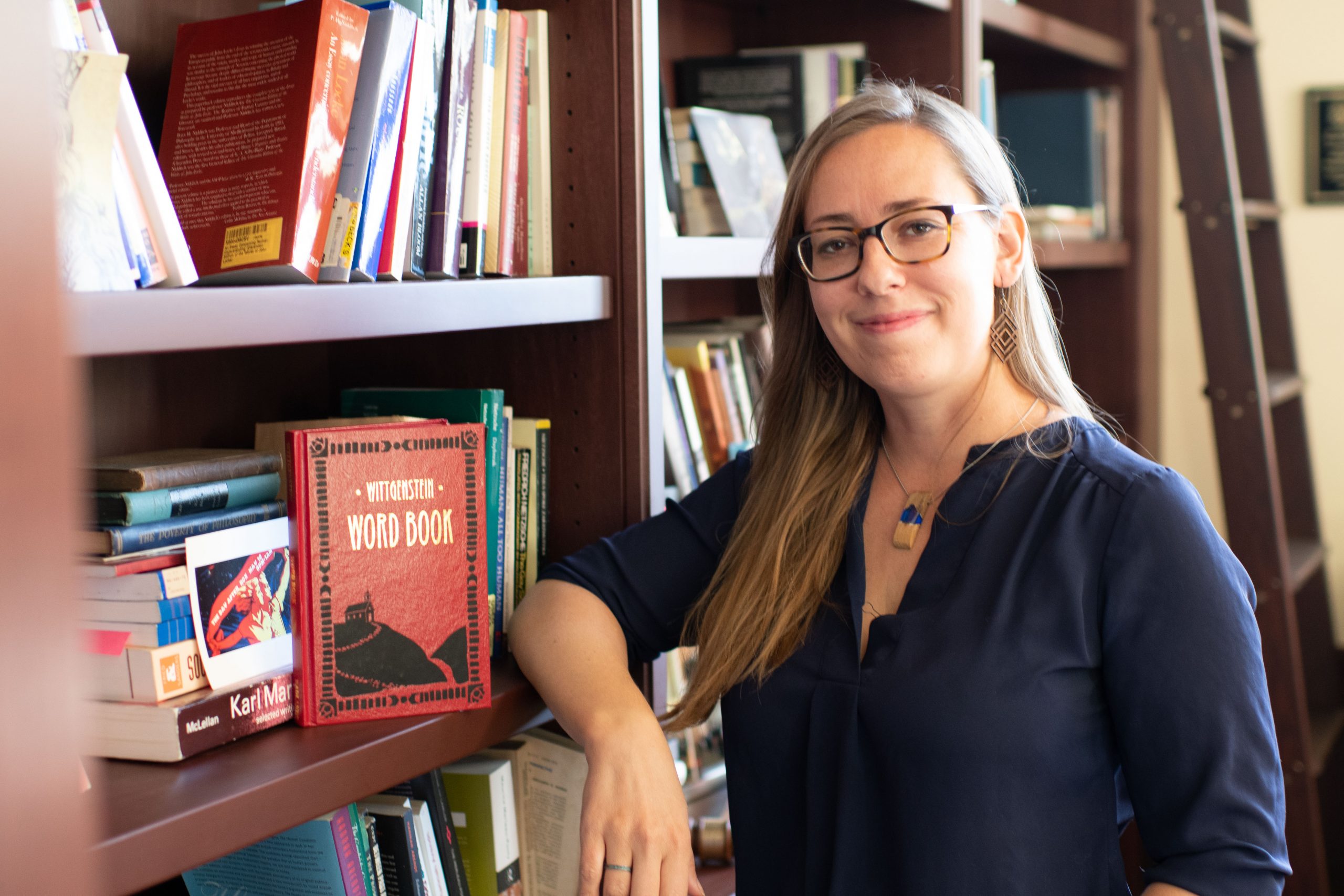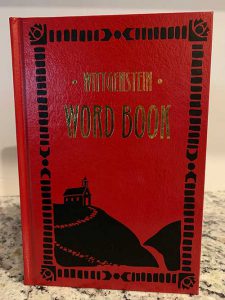
Political science professor writes introduction to first-ever English translation of Ludwig Wittgenstein book

Désirée Weber, assistant professor of political science at The College of Wooster, wrote the critical introduction to Word Book, the first-ever English translation of the influential 20th-century philosopher Ludwig Wittgenstein’s book Wörterbuch für Volksschulen, or Dictionary for Elementary Schools. Word Book, which was translated by Bettina Funcke and Catherine Schelbert and includes illustrations by contemporary artist Paul Chan, was published Nov. 3 by Badlands Unlimited.
Wittgenstein worked significantly in the philosophy of language. He wrote the dictionary as a tool for his students when he was teaching elementary school in rural Austria during a hiatus from his academic work at Cambridge University. The words included in Word Book are very specific to the children’s age and location. “He selected the word entries incredibly carefully, making sure not to include too many foreign words or words above their comprehension. He also selected words from their rural surroundings and from the regional dialect to ensure that the dictionary both reflected and strengthened these particular students’ word usage and ability to convey meaning in their context,” Weber explained. “This publication including a first-ever English translation of the entries is significant because the deep and rich sense of the location and purpose for which Wittgenstein was selecting words to include has been inaccessible to scholars, unless they could read German.”
In her introduction, Weber explains how Word Book and this time in Wittgenstein’s life impacted his later and more famous philosophical work. “My Critical Introduction to this publication traces the effect of this time on Wittgenstein’s later work when he returned to Cambridge to write the renowned Philosophical Investigations,” Weber said. “Wittgenstein uses teaching and learning as a framing device for his inquiries, especially in the Philosophical Investigations. Frequent examples of students learning how to understand and use meaning suffuse the work.”

Weber first learned about Wörterbuch für Volksschulen while writing her Ph.D. dissertation on Wittgenstein’s teaching and learning. She explained that the dictionary’s earlier printings were very rare and copies of the book were hard to find despite the insight it offers on Wittgenstein’s thoughts on language. “In terms of its role or significance for understanding the life and work of one of the greatest philosophers of the 20th Century, it was entirely ignored for decades,” Weber said. “While the dictionary itself is not a philosophical treatise, Wittgenstein gives some hints and rationales for his approach in the preface he wrote for it. And so the dictionary provides valuable insight into his changing views on language during this time.”
Currently Weber is working on a book that investigates Wittgenstein’s philosophy of language and in part explores this time that he spent as a teacher. “My book traces the threads of teaching and learning through Wittgenstein’s biography, including his time as a schoolteacher, and his later philosophical works,” she said. “This work lends insights into how we create meaning through language and the role of shared meaning in our communities and practices.”
Posted in News on November 2, 2020.
Related Posts
Related Areas of Study
Political Science
The study of power, with concentrations in U.S. politics, international relations, political theory and comparative politics.
Major Minor

